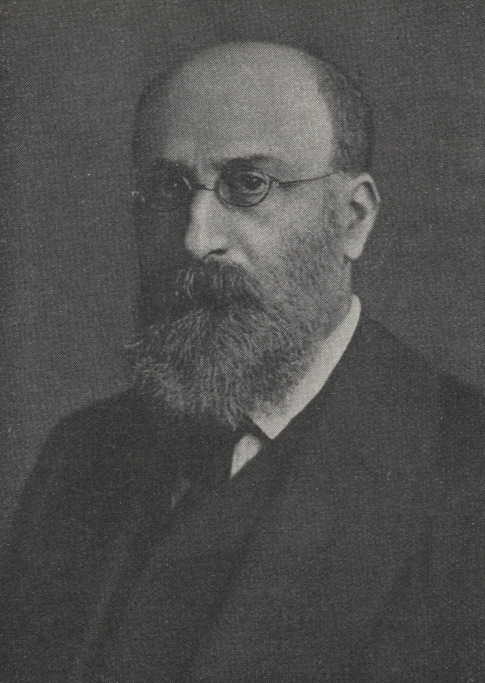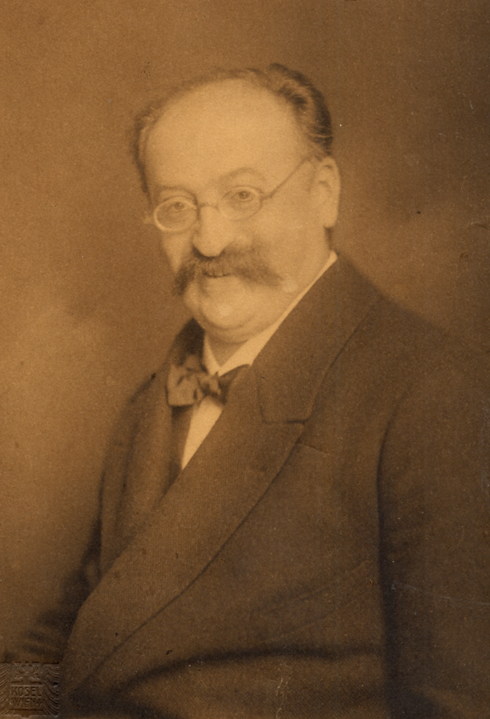|
Ernst Kurth
Ernst Kurth (1 June 1886, in Vienna – 2 August 1946, in Bern) was a Swiss music theorist of Austrian origin. Career Kurth studied musicology with Guido Adler (a student of Bruckner and Hanslick) in Vienna, and earned his Ph.D. (1908) with a thesis about Christoph Willibald Gluck's operatic style. In a relatively short publishing career of about 15 years, Kurth wrote four enormously influential works: ''Grundlagen des Linearen Kontrapunkts'' (''Foundations of Linear Counterpoint''), ''Romantische Harmonik und ihre Krise in Wagners "Tristan"'' (''Romantic Harmony and its Crisis in Wagner's "Tristan"''), ''Bruckner'', and ''Musikpsychologie''. Since the 1940s, Kurth was gradually eclipsed by other theorists (notably Heinrich Schenker Heinrich Schenker (19 June 1868 – 14 January 1935) was a Galician-born Austrian music theorist whose writings have had a profound influence on subsequent musical analysis. His approach, now termed Schenkerian analysis, was most fully ex ... [...More Info...] [...Related Items...] OR: [Wikipedia] [Google] [Baidu] |
Kurth Ernst
Kurth may refer to: ;People * Charles J. Kurth (1862-1896), American lawyer and politician * Don Kurth (b. 1949), American politician * Ernst Kurth (1886-1946), Swiss music theorist * Godefroid Kurth (1847-1916), Belgian historian * James Kurth (b. ? ), Claude Smith Professor of Political Science at Swarthmore College, United States * Jean-Pierre Kurth, Swiss para-alpine skier * Joe Kurth (1914 - ? ), American football player * Markus Kurth (footballer) (b. 1973), German footballer (soccer player) * Markus Kurth (politician) (b. 1966), German politician * Monica Kurth, American politician * Rob Kurth (b. ? ), American punk rock drummer in the band Face to Face (punk band) * Ronald J. Kurth (b. ? ), United States Navy admiral * Wally Kurth (b. 1958), American singer and television performer ;Companies * Andrews Kurth, Houston, Texas-based law firm * Kurth Brewery Kurth Brewery was located in Columbus, Wisconsin and operated from 1859 to 1949. In 1914, it was producing about 100 ... [...More Info...] [...Related Items...] OR: [Wikipedia] [Google] [Baidu] |
Music Theorist
Music theory is the study of the practices and possibilities of music. ''The Oxford Companion to Music'' describes three interrelated uses of the term "music theory". The first is the "rudiments", that are needed to understand music notation (key signatures, time signatures, and rhythmic notation); the second is learning scholars' views on music from antiquity to the present; the third is a sub-topic of musicology that "seeks to define processes and general principles in music". The musicological approach to theory differs from music analysis "in that it takes as its starting-point not the individual work or performance but the fundamental materials from which it is built." Music theory is frequently concerned with describing how musicians and composers make music, including tuning systems and composition methods among other topics. Because of the ever-expanding conception of what constitutes music, a more inclusive definition could be the consideration of any sonic phenomena, i ... [...More Info...] [...Related Items...] OR: [Wikipedia] [Google] [Baidu] |
Guido Adler
Guido Adler (1 November 1855, Ivančice (Eibenschütz), Moravia – 15 February 1941, Vienna) was a Bohemian-Austrian musicologist and writer. Biography Early life and education Adler was born at Eibenschütz in Moravia in 1855. He moved with his family to Vienna nine years later. His father Joachim, a physician, died of typhoid fever in 1857. Joachim contracted the illness from a patient, and therefore told his wife Franciska to "never allow any of the children to become a doctor". Adler studied at the University of Vienna and — at the same time (1868-1874) — the Vienna Conservatory of Music (where he studied piano (main subject) and music theory and composition under Anton Bruckner and Otto Dessoff). He even briefly served at the Vienna Handelsgericht before deciding to pursue his interest in music history.Erica Mugglestone, "Guido Adler's 'The Scope, Method, and Aim of Musicology' (1885): An English Translation with an Historico-Analytical Commentary," ''Yearbook f ... [...More Info...] [...Related Items...] OR: [Wikipedia] [Google] [Baidu] |
Anton Bruckner
Josef Anton Bruckner (; 4 September 182411 October 1896) was an Austrian composer, organist, and music theorist best known for his symphonies, masses, Te Deum and motets. The first are considered emblematic of the final stage of Austro-German Romanticism because of their rich harmonic language, strongly polyphonic character, and considerable length. Bruckner's compositions helped to define contemporary musical radicalism, owing to their dissonances, unprepared modulations, and roving harmonies. Unlike other musical radicals such as Richard Wagner and Hugo Wolf, Bruckner showed extreme humility before other musicians, Wagner in particular. This apparent dichotomy between Bruckner the man and Bruckner the composer hampers efforts to describe his life in a way that gives a straightforward context for his music. Hans von Bülow described him as "half genius, half simpleton". Bruckner was critical of his own work and often reworked his compositions. There are several version ... [...More Info...] [...Related Items...] OR: [Wikipedia] [Google] [Baidu] |
Eduard Hanslick
Eduard Hanslick (11 September 18256 August 1904) was an Austrian music critic, aesthetician and historian. Among the leading critics of his time, he was the chief music critic of the ''Neue Freie Presse'' from 1864 until the end of his life. He was a conservative critic and championed absolute music over programmatic music for much of his career. As such, he sided with and promoted the faction of Robert Schumann and Johannes Brahms in the so-called "War of the Romantics", often deriding the works of composers such as Franz Liszt and Richard Wagner. His best known work, the 1854 treatise ''Vom Musikalisch-Schönen'' (''On the Musically Beautiful''), was a landmark in the aesthetics of music and outlines much of his artistic and philosophical beliefs on music. Biography Hanslick was born in Prague (then in the Austrian Empire), the son of Joseph Adolph Hanslik, a bibliographer and music teacher from a German-speaking family, and one of Hanslik's piano pupils, the daughter of a J ... [...More Info...] [...Related Items...] OR: [Wikipedia] [Google] [Baidu] |
Christoph Willibald Gluck
Christoph Willibald (Ritter von) Gluck (; 2 July 1714 – 15 November 1787) was a composer of Italian and French opera in the early classical period. Born in the Upper Palatinate and raised in Bohemia, both part of the Holy Roman Empire, he gained prominence at the Habsburg court at Vienna. There he brought about the practical reform of opera's dramaturgical practices for which many intellectuals had been campaigning. With a series of radical new works in the 1760s, among them '' Orfeo ed Euridice'' and '' Alceste'', he broke the stranglehold that Metastasian '' opera seria'' had enjoyed for much of the century. Gluck introduced more drama by using orchestral recitative and cutting the usually long da capo aria. His later operas have half the length of a typical baroque opera. Future composers like Mozart, Schubert, Berlioz and Wagner revered Gluck very highly. The strong influence of French opera encouraged Gluck to move to Paris in November 1773. Fusing the traditions ... [...More Info...] [...Related Items...] OR: [Wikipedia] [Google] [Baidu] |
Heinrich Schenker
Heinrich Schenker (19 June 1868 – 14 January 1935) was a Galician-born Austrian music theorist whose writings have had a profound influence on subsequent musical analysis. His approach, now termed Schenkerian analysis, was most fully explained in a three volume series entitled ''Neue musikalische Theorien und Phantasien'' (''New Musical Theories and Phantasies''), which included ''Harmony'' (1906), ''Counterpoint'' (1910; 1922) and ''Free Composition'' (1935). Born in Wiśniowczyk, Austrian Galicia, he studied law at University of Vienna and music at what is now the University of Music and Performing Arts Vienna where his teachers included Franz Krenn, Ernst Ludwig, Anton Bruckner and Johann Nepomuk Fuchs. Despite his law degree, he focused primarily on a musical career following graduation, finding minimal success as a composer, conductor and accompanist. From the 20th-century on, Schenker increasingly directed his efforts towards music theory, developing a systemic ap ... [...More Info...] [...Related Items...] OR: [Wikipedia] [Google] [Baidu] |
Grove Dictionary Of Music
''The New Grove Dictionary of Music and Musicians'' is an encyclopedic dictionary of music and musicians. Along with the German-language ''Die Musik in Geschichte und Gegenwart'', it is one of the largest reference works on the history and theory of music. Earlier editions were published under the titles ''A Dictionary of Music and Musicians'', and ''Grove's Dictionary of Music and Musicians''; the work has gone through several editions since the 19th century and is widely used. In recent years it has been made available as an electronic resource called ''Grove Music Online'', which is now an important part of ''Oxford Music Online''. ''A Dictionary of Music and Musicians'' ''A Dictionary of Music and Musicians'' was first published in London by Macmillan and Co. in four volumes (1879, 1880, 1883, 1889) edited by George Grove with an Appendix edited by J. A. Fuller Maitland in the fourth volume. An Index edited by Mrs. E. Wodehouse was issued as a separate volume in 1890. In 1 ... [...More Info...] [...Related Items...] OR: [Wikipedia] [Google] [Baidu] |
1886 Births
Events January–March * January 1 – Upper Burma is formally annexed to British Burma, following its conquest in the Third Anglo-Burmese War of November 1885. * January 5– 9 – Robert Louis Stevenson's novella ''Strange Case of Dr Jekyll and Mr Hyde'' is published in New York and London. * January 16 – A resolution is passed in the German Parliament to condemn the Prussian deportations, the politically motivated mass expulsion of ethnic Poles and Jews from Prussia, initiated by Otto von Bismarck. * January 18 – Modern field hockey is born with the formation of The Hockey Association in England. * January 29 – Karl Benz patents the first successful gasoline-driven automobile, the Benz Patent-Motorwagen (built in 1885). * February 6– 9 – Seattle riot of 1886: Anti-Chinese sentiments result in riots in Seattle, Washington. * February 8 – The West End Riots following a popular meeting in Trafalgar Square, London. * F ... [...More Info...] [...Related Items...] OR: [Wikipedia] [Google] [Baidu] |
1946 Deaths
Events January * January 6 - The first general election ever in Vietnam is held. * January 7 – The Allies recognize the Austrian republic with its 1937 borders, and divide the country into four occupation zones. * January 10 ** The first meeting of the United Nations is held, at Methodist Central Hall Westminster in London. ** ''Project Diana'' bounces radar waves off the Moon, measuring the exact distance between the Earth and the Moon, and proves that communication is possible between Earth and outer space, effectively opening the Space Age. * January 11 - Enver Hoxha declares the People's Republic of Albania, with himself as prime minister. * January 16 – Charles de Gaulle resigns as head of the French provisional government. * January 17 - The United Nations Security Council holds its first session, at Church House, Westminster in London. * January 19 ** The Bell XS-1 is test flown for the first time (unpowered), with Bell's chief test pilot Jack Woolams at t ... [...More Info...] [...Related Items...] OR: [Wikipedia] [Google] [Baidu] |
Swiss Music Theorists
Swiss may refer to: * the adjectival form of Switzerland *Swiss people Places *Swiss, Missouri * Swiss, North Carolina *Swiss, West Virginia *Swiss, Wisconsin Other uses *Swiss-system tournament, in various games and sports *Swiss International Air Lines **Swiss Global Air Lines, a subsidiary *Swissair, former national air line of Switzerland *.swiss alternative TLD for Switzerland See also *Swiss made, label for Swiss products *Swiss cheese (other) *Switzerland (other) *Languages of Switzerland, none of which are called "Swiss" *International Typographic Style, also known as Swiss Style, in graphic design *Schweizer (other), meaning Swiss in German *Schweitzer, a family name meaning Swiss in German *Swisse Swisse is a vitamin, supplement, and skincare brand. Founded in Australia in 1969 and globally headquartered in Melbourne, and was sold to Health & Happiness, a Chinese company based in Hong Kong previously known as Biostime International, in a ... [...More Info...] [...Related Items...] OR: [Wikipedia] [Google] [Baidu] |







